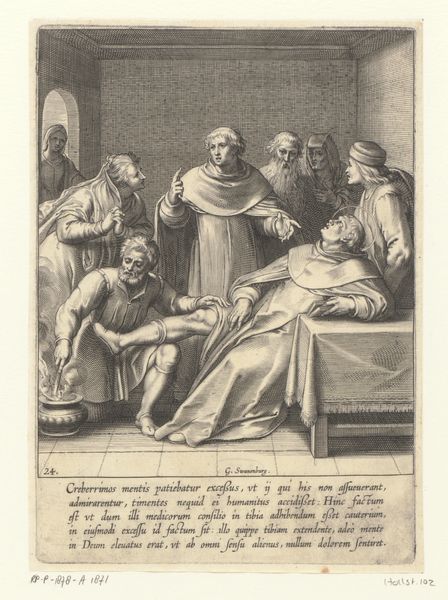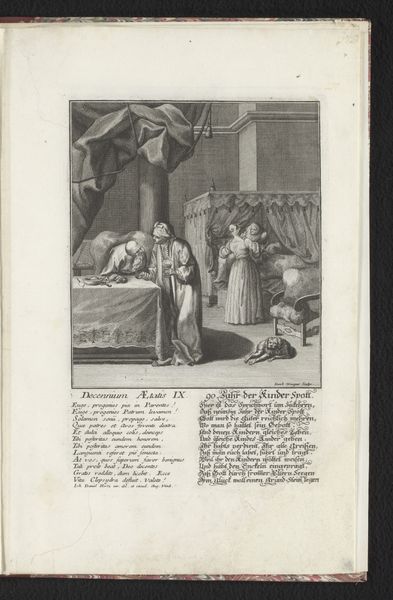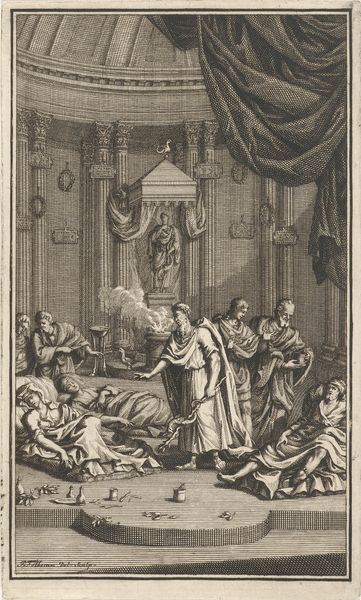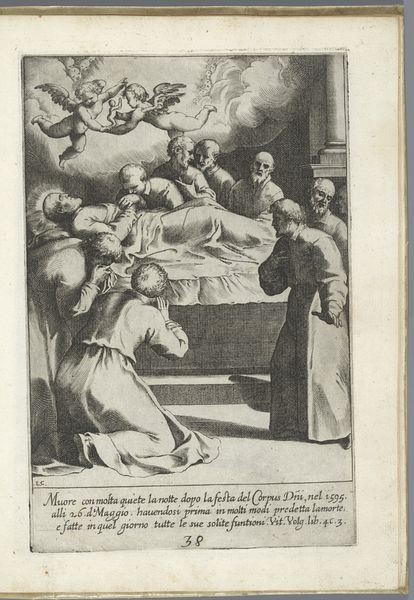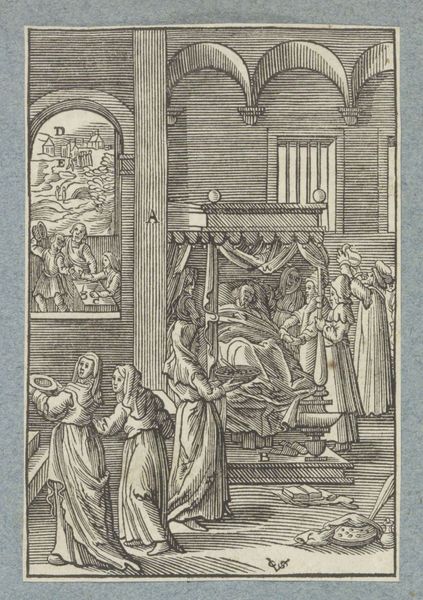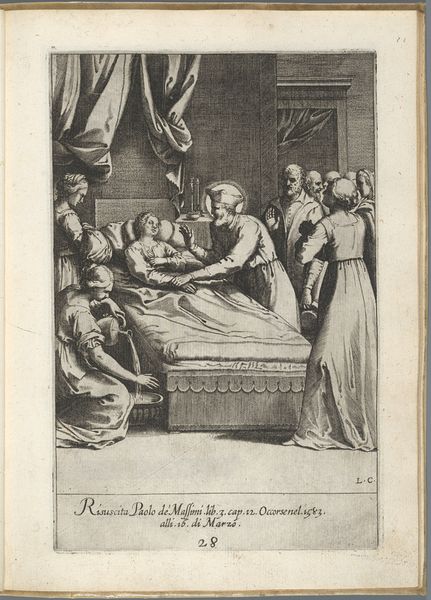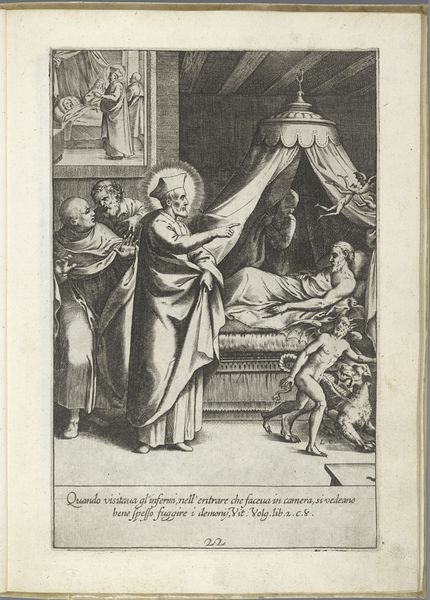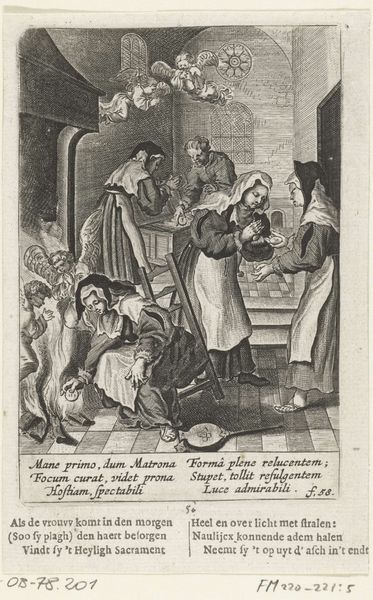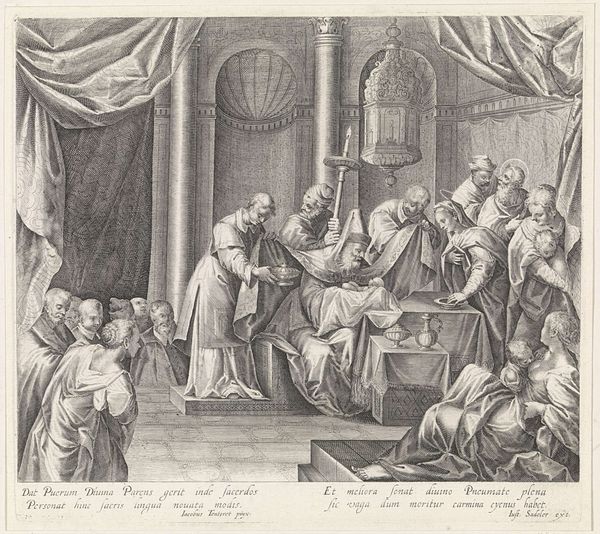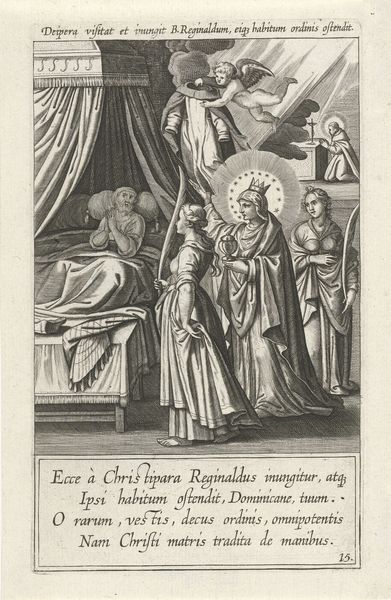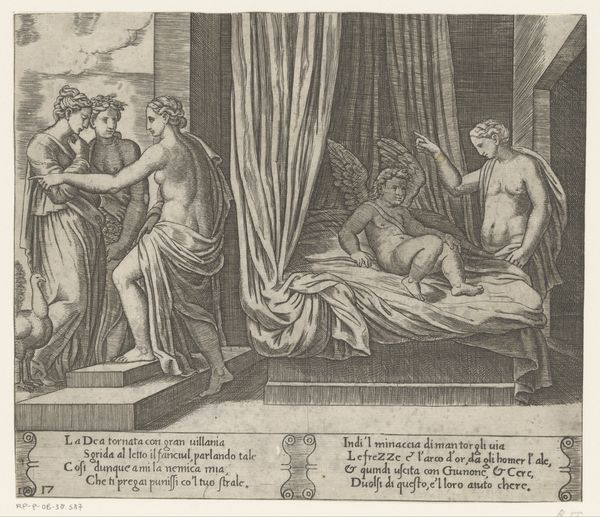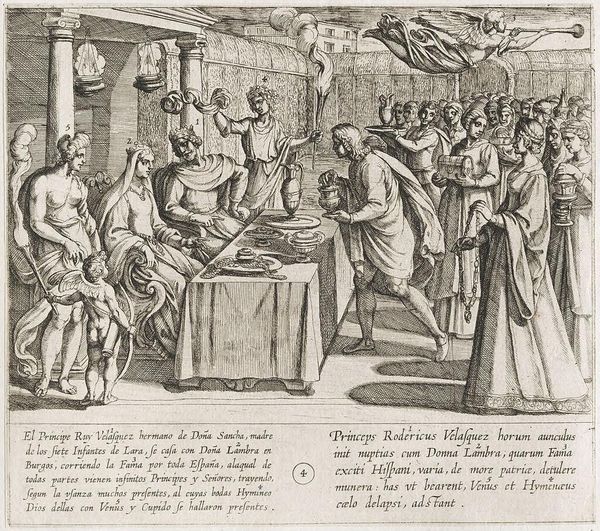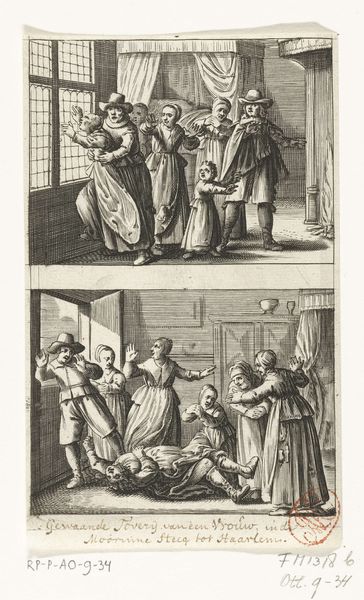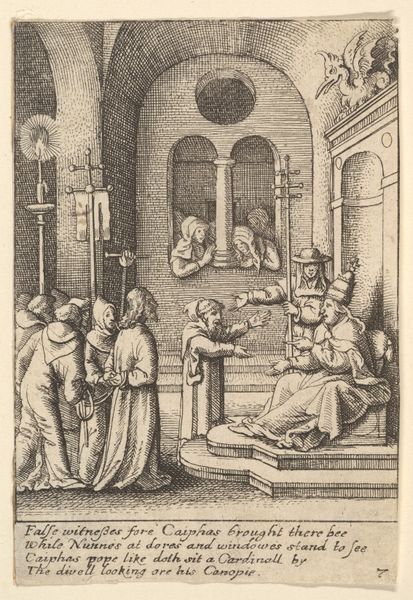
print, engraving
#
baroque
# print
#
history-painting
#
engraving
Dimensions: height 233 mm, width 145 mm
Copyright: Rijks Museum: Open Domain
This is "The Sick Lazarus," an engraving made by Wierix in the late 16th or early 17th century. It depicts a biblical scene, filtered through the lens of the artist's time. Wierix lived during the Counter-Reformation, a period of intense religious and political upheaval. This context is crucial to understanding his work. The engraving shows Lazarus on his deathbed, surrounded by mourners and attendants. In the foreground, three women carry platters, perhaps bearing food or medicine. To the left, we see a scene of messengers being sent to Jesus. In this era, disease was often interpreted through a moral lens. Illness, like poverty, could reflect one's spiritual state. The engraving emphasizes Lazarus's helplessness and the reliance on divine intervention. The artist is not just illustrating a story, but also reinforcing the power and compassion of Jesus within a society grappling with questions of faith, mortality, and social order. We are reminded of our own vulnerability and the hope for deliverance in times of despair.
Comments
No comments
Be the first to comment and join the conversation on the ultimate creative platform.
